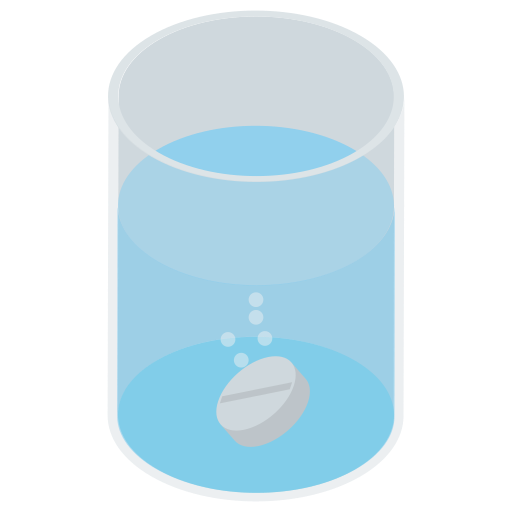
Glycopyrronium Bromide
1 gm/5 ml
Incepta Pharmaceuticals Ltd.
Product Details
Description
Glycopyrronium Bromide oral solution is contraindicated in: Patients with medical conditions that preclude anticholinergic therapy (e.g., glaucoma, paralytic ileus, unstable cardiovascular status in acute hemorrhage, severe ulcerative colitis, toxic megacolon complicating ulcerative colitis, myasthenia gravis). Patients taking solid oral dosage forms of potassium chloride. The passage of potassium chloride tablets through the gastrointestinal (GI) tract may be arrested or delayed with coadministration of Glycopyrronium Bromide oral solution.
Gastrointestinal: Abdominal distention, abdominal pain, stomach discomfort, chapped lips, flatulence, retching, dry tongue General Disorders: Irritability, pain Infections: Pneumonia, sinusitis, tracheostomy infection, upper respiratory tract infection, urinary tract infection Investigations: Heart rate increase Metabolism and Nutrition: Dehydration Nervous System: Headache, convulsion, dysgeusia, nystagmus Psychiatric: Agitation, restlessness, abnormal behavior, aggression, crying, impulse control disorder, moaning, mood altered Respiratory: Increased viscosity of bronchial secretion, nasal congestion, nasal dryness Skin: Dry skin, pruritus, rash Vascular: Pallor
There are no available data in pregnant women for Glycopyrronium Bromide to inform decisions concerning any drug-associated risks. There are no data on the presence of glycopyrrolate or its metabolites in human milk, the effects on the breastfed infant, or the effects on milk production. The developmental and health benefits of breastfeeding should be considered along with the mother’s clinical need for Glycopyrronium Bromide and any potential adverse effects on the breastfed infant from Glycopyrronium Bromide or from the underlying maternal condition.
Constipation or Intestinal Pseudo-obstruction: Constipation is a common dose-limiting adverse reaction that sometimes leads to glycopyrrolate discontinuation. Assess patients for constipation, particularly within 4-5 days of initial dosing or after a dose increase. Intestinal pseudo-obstruction has been reported and may present as abdominal distention, pain, nausea or vomiting. Incomplete Mechanical Intestinal Obstruction: Diarrhea may be an early symptom of incomplete mechanical intestinal obstruction, especially in patients with ileostomy or colostomy. If the incomplete mechanical intestinal obstruction is suspected, discontinue treatment with Glycopyrronium Bromide and evaluate for intestinal obstruction. High Ambient Temperatures: In the presence of high ambient temperature, heat prostration (fever and heat stroke due to decreased sweating) can occur with the use of anticholinergic drugs such as Glycopyrronium Bromide. Advise patients/caregivers to avoid exposure of the patient to hot or very warm environmental temperatures. Operating Machinery or an Automobile: Glycopyrronium Bromide may produce drowsiness or blurred vision. As appropriate for a given age, warn the patient not to engage in activities requiring mental alertness such as operating a motor vehicle or other machinery, or performing hazardous work while taking Glycopyrronium Bromide. Anticholinergic Drug Effects: Use Glycopyrronium Bromide with caution in patients with conditions that are exacerbated by anticholinergic drug effects including: Autonomic neuropathy Renal disease Ulcerative colitis- Large doses may suppress intestinal motility to the point of producing a paralytic ileus and for this reason may precipitate or aggravate "toxic megacolon", a serious complication of the disease Hyperthyroidism Coronary heart disease, congestive heart failure, cardiac tachyarrhythmias, tachycardia, and hypertension Hiatal hernia associated with reflux esophagitis, since anticholinergic drugs may aggravate this condition
Pediatric Use: Glycopyrronium Bromide was evaluated for chronic severe drooling in patients aged 3-16 years with neurologic conditions associated with problem drooling. Glycopyrronium Bromide has not been studied in subjects under the age of 3 years. Geriatric Use: Clinical studies of Glycopyrronium Bromide did not include subjects aged 65 and over. Renal Impairment: Because glycopyrrolate is largely renally eliminated, Glycopyrronium Bromide should be used with caution in patients with renal impairment
Because glycopyrrolate is a quaternary amine which does not easily cross the blood-brain barrier, symptoms of glycopyrrolate overdosage are generally more peripheral in nature rather than central compared to other anticholinergic agents. In case of accidental overdose, therapy may include: Maintain an open airway, providing ventilation as necessary. Managing any acute conditions such as hyperthermia, coma and or seizures as applicable, and managing any jerky myoclonic movements or choreoathetosis which may lead to rhabdomyolysis in some cases of anticholinergic overdosage. Administering a quaternary ammonium anticholinesterase such as neostigmine to help alleviate-peripheral anticholinergic effects such as anticholinergic induced ileus. Administering activated charcoal orally as appropriate.
Anticholinergics (antimuscarinics)/ Anti-spasmodics
-
Support 24/7
Call us anytime -
100% Safety
Only secure payments